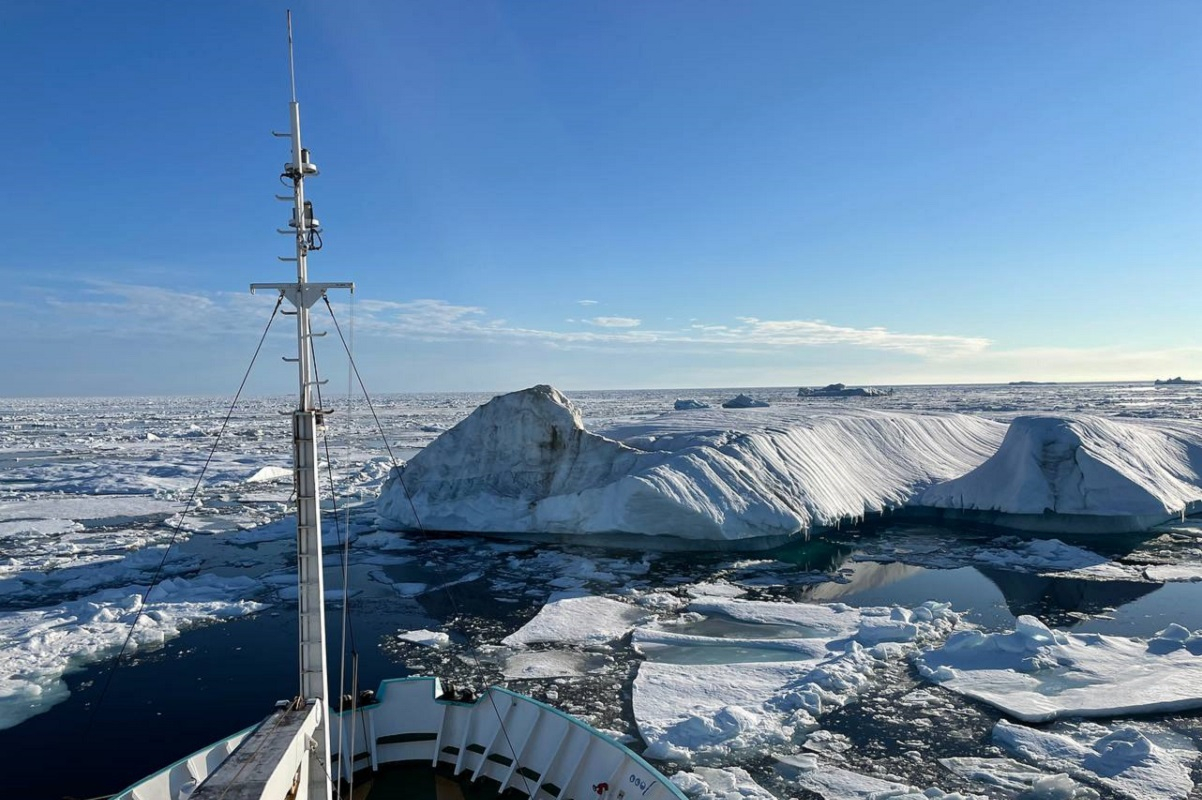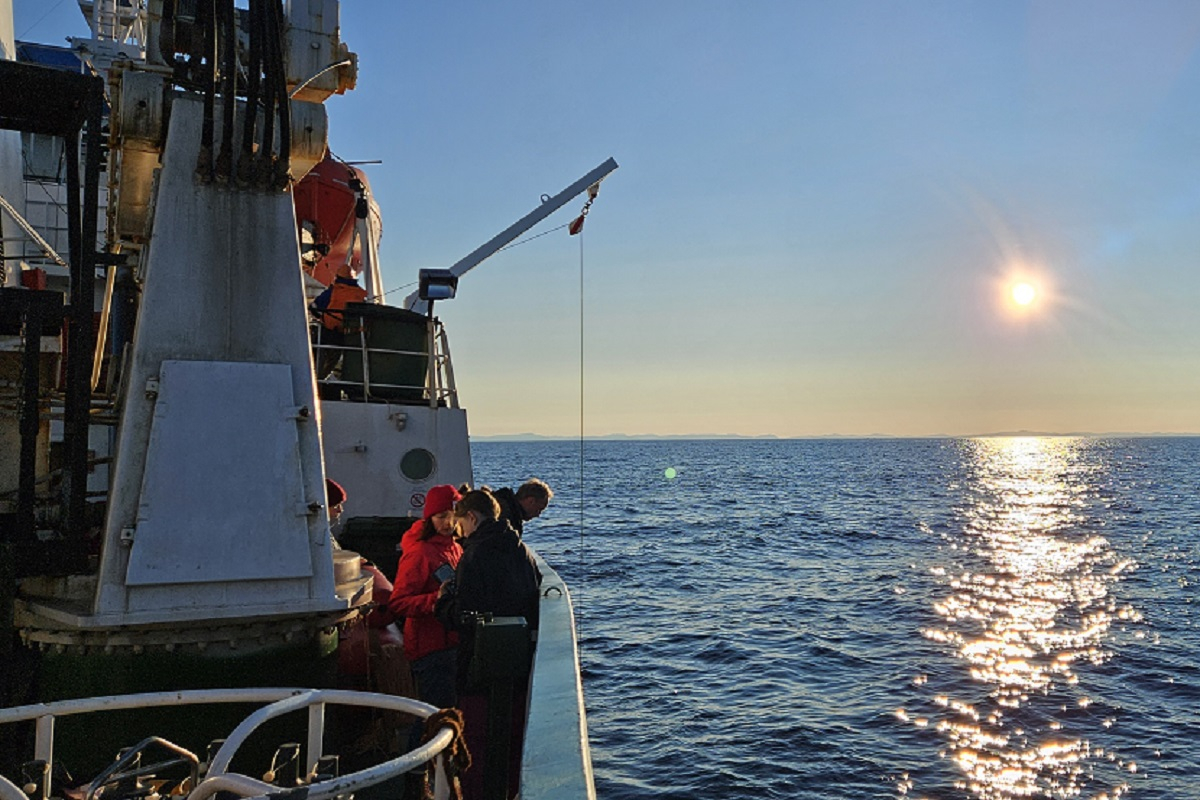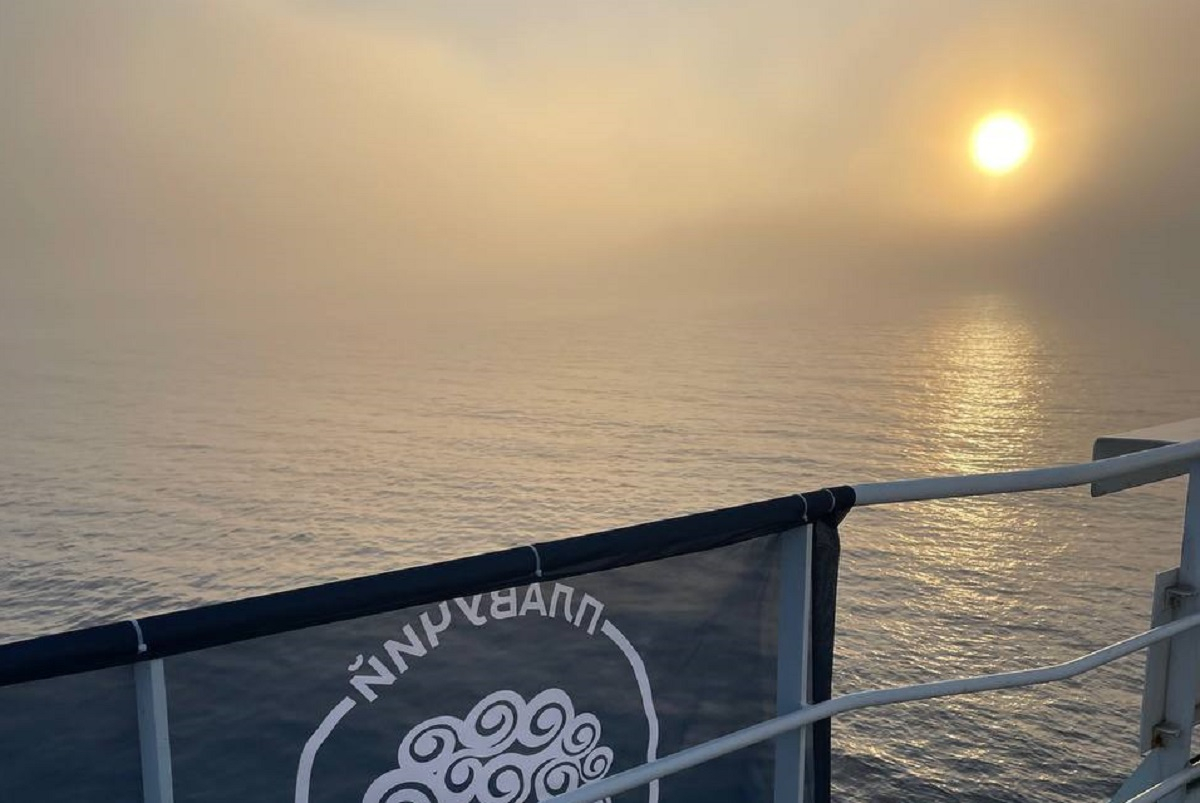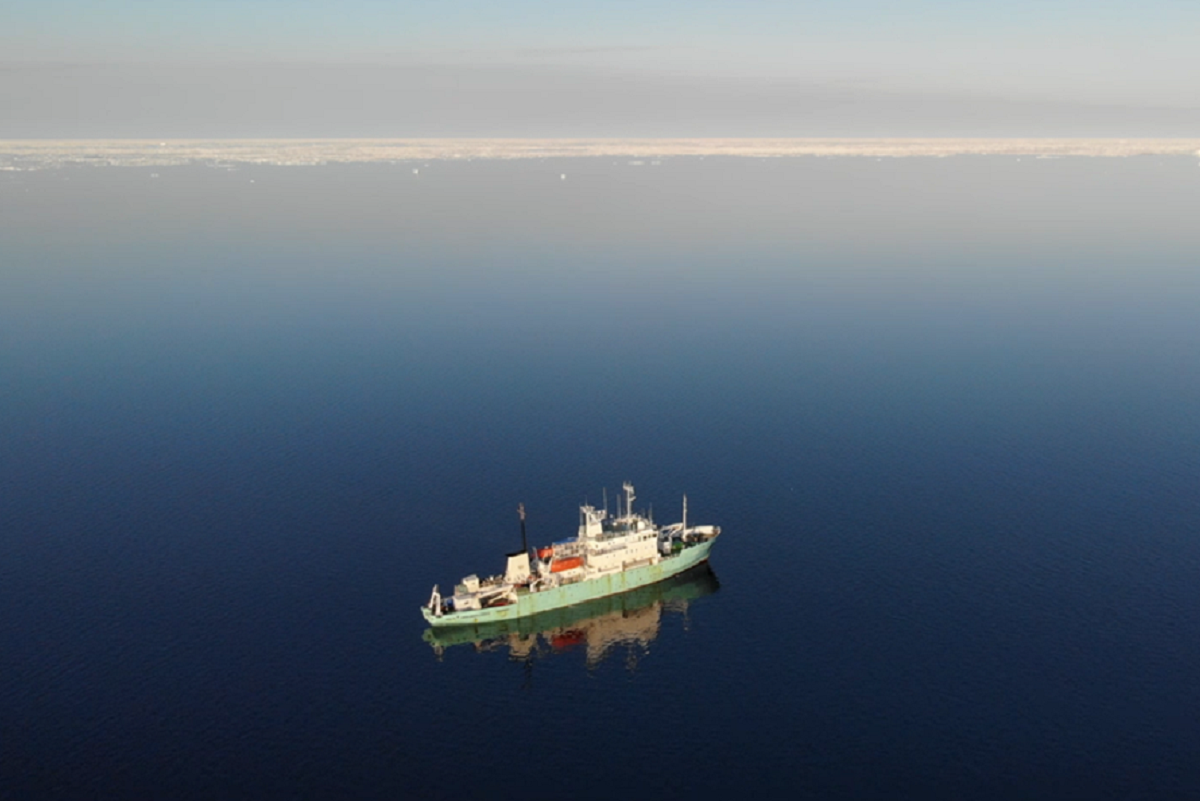Oceanographer and microbiologist from St Petersburg University take part in the 40-day Arctic expedition of the Floating University
Scientists from St Petersburg University have studied water masses on the shelf and continental slope of the Russian Arctic seas during the Floating University 2024 expedition.
Kirill Antonets, a laureate of the Presidential Prize of the Russian Federation in Science and Innovation for Young Scientists and Leading Research Associate in the Department of Cytology and Histology at St Petersburg University and the All-Russian Research Institute of Agricultural Meteorology, along with Aleksey Zimin, Head of the Laboratory of Geophysical Boundary Layers at the St Petersburg Branch of the Shirshov Institute of Oceanology of the Russian Academy of Sciences and Professor in the Department of Oceanology at St Petersburg University, spent nearly 40 days aboard the Research Vessel "Professor Molchanov."
According to Kirill Antonets, the participants remained at sea throughout the expedition. The research vessel departed from Arkhangelsk, traversing the White and Barents Seas, passing through the Kara Strait, and reaching the northern tip of Novaya Zemlya, where the scientists conducted studies in the Kara Sea. The vessel continued between the Taymyr Peninsula and the Severnaya Zemlya archipelago, rounding the northernmost point of Eurasia, Cape Chelyuskin. The scientists then worked in the Laptev Sea, near Severnaya Zemlya, and near the mouth of the Lena River, before concluding the expedition in the port of Tiksi.
Such an extensive and prolonged expedition naturally required the involvement of numerous research teams working across various disciplines to comprehensively study the regions of interest. The voyage included research on ocean currents, the characterisation of plankton, the geochemical and biological analysis of bottom sediments, and the examination of the Earth’s ionosphere.
Kirill Antonets, a laureate of the Presidential Prize of the Russian Federation in Science and Innovation for Young Scientists and Leading Research Associate in the Department of Cytology and Histology at St Petersburg University and the All-Russian Research Institute of Agricultural Meteorology
"The research I was directly involved in focused on studying bacteria living in marine bottom sediments, their properties and potential applications in agriculture. The challenge with such studies is that a comprehensive analysis of the material requires a significant amount of expensive equipment, which is impossible to bring aboard the ship," said Kirill Antonets.
The main findings of the research will therefore be obtained on land. According to Kirill Antonets, Leading Research Associate at St Petersburg University, the collected samples will provide enough material for the University’s experts to study for another year.
"I must say we were very fortunate, and the expedition went smoothly. There were a few minor storms, but more often, we enjoyed the reflection of the bright blue sky on the mirror-like surface of the sea or watched ice floes with seals resting on them, glistening in the Arctic sun," Kirill Antonets added. An important achievement of the expedition organisers was the selection of participants who are passionate about science and prepared to work at any time of day throughout the voyage. "During the expedition, there were lectures on various aspects of oceanography that broadened my horizons, and seminars that helped me better understand the nuances of preparing academic papers," he noted.
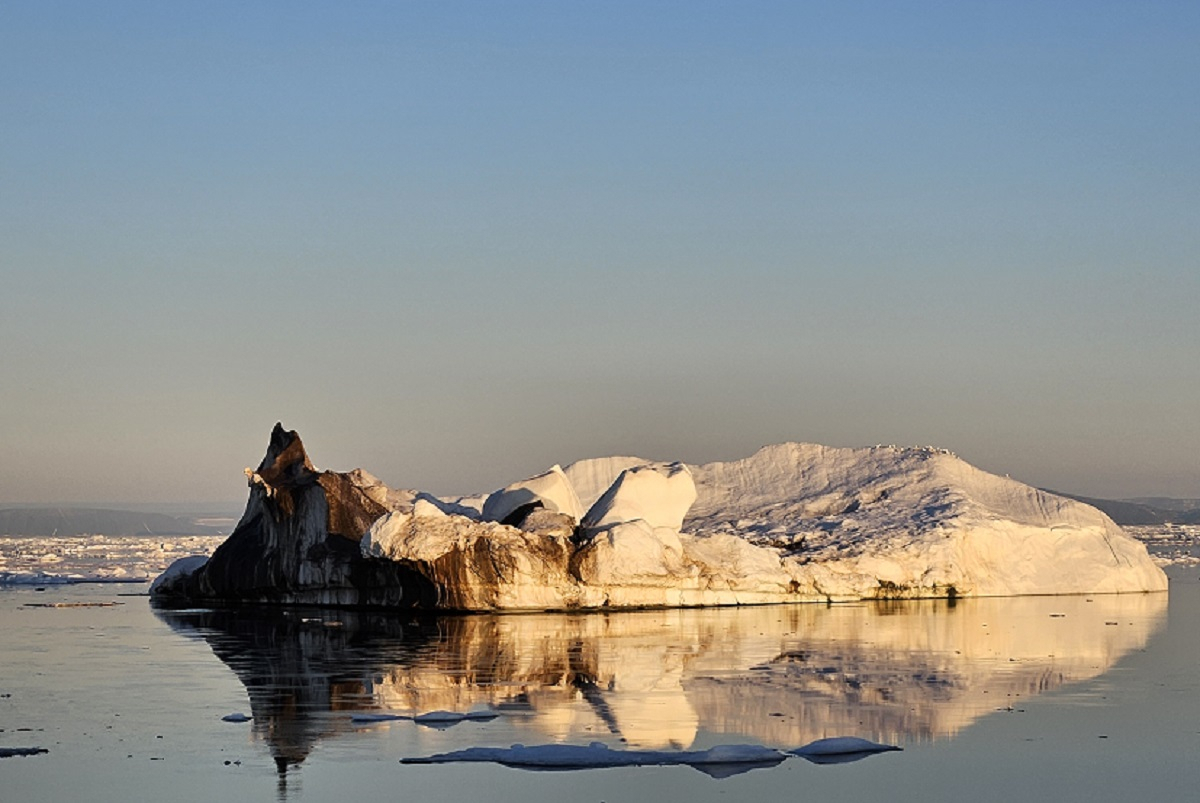
Aleksey Zimin, Professor of St Petersburg University, highlighted that the students who participated in the Floating University expedition had the opportunity to work alongside Russia’s best early-career researchers across various fields.
"I hope the students were able to grasp the spirit of a researcher: when you work not from 9am to 6pm, but 24 hours a day; when you do not simply work, but live science. The experience of interacting with such individuals is invaluable for young people," said Aleksey Zimin. "As part of the Floating University, academic staff delivered lectures on the expedition’s current research topics, while students organised seminars and popular science classes," he added.
During the expedition aboard the R/V "Professor Molchanov", a team led by the professor from St Petersburg University conducted large-scale measurements of short-period internal waves in various regions of the Kara and Laptev Seas. These waves are one of the primary regional mechanisms influencing the intensity of vertical mixing.
The key feature of the work was its focus on studying fast processes in the upper layer of the sea. The researchers developed a methodology that combined frequent and continuous contact measurements with UAV surveys of the water surface. As a result, the scientists were able not only to precisely identify key observation points but also to track the locations of surface manifestations of internal ocean processes, enabling further assessment of their dynamics.
"The contact observations included multi-sensor measurements from the ship, and the deployment of a buoy thermal profiling system at some distance from it. Complex measurements will enable a more detailed assessment of the kinematic characteristics of internal waves and their influence on vertical mixing," said Aleksey Zimin.
As part of the expedition, the team led by the professor from St Petersburg University also conducted detailed studies of the structure of ice-tracked eddies in the northern regions of the Kara and Laptev Seas. Satellite images were used to determine the shape and dynamics of the eddies, aiding in the planning of hydrological work. The results of the integrated data analysis will improve approaches to interpreting Earth remote sensing data from space.
For reference: The Floating University expeditions are carried out within the framework of the national project ‘Science and Universities’, implemented by the Russian Ministry of Science and Higher Education, and are part of the Science to Win initiative of the Decade of Science and Technology.
In 2024, 14 students from St Petersburg University were selected to participate in five expeditions of the All-Russian scientific and educational programme "Floating University" based at Moscow Institute of Physics and Technology (MIPT).


